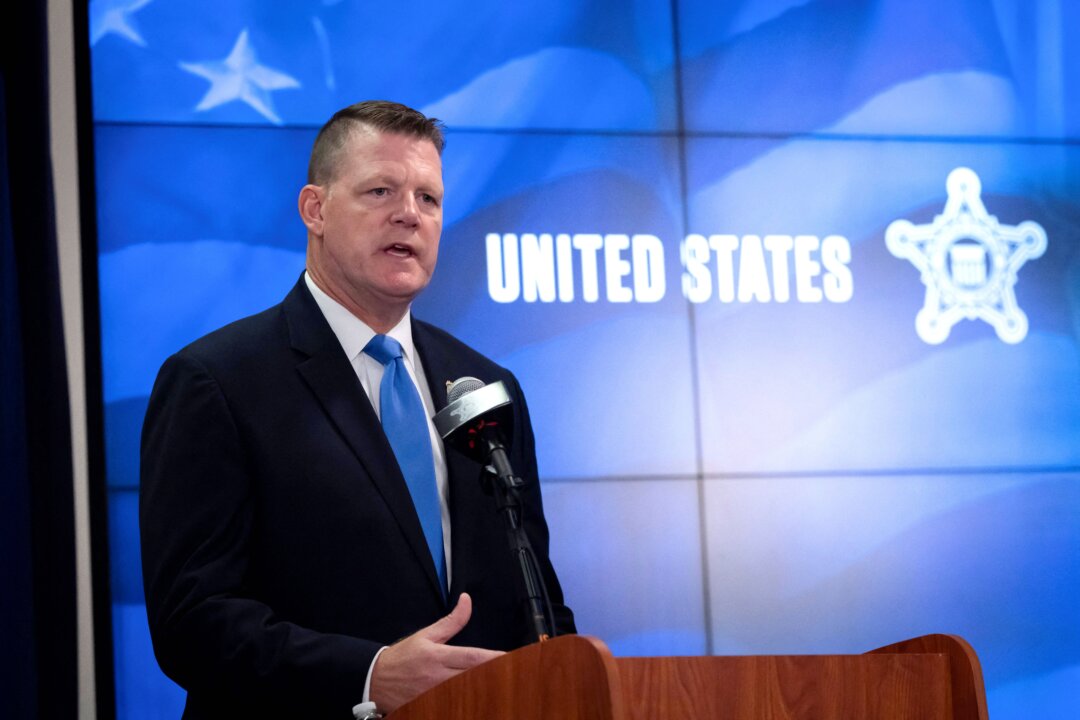The agency director said there were a number of communications failures ahead of the assassination attempt in Pennsylvania.
Acting Secret Service Director Ronald Rowe said Friday that some Secret Service agents who were involved in securing the July 13 rally site where former President Donald Trump survived an assassination attempt face discipline.
In a Friday news conference in Washington, Rowe did not go into details about the staff or possible punishments that could be meted out. He said, however, that he hasn’t “asked for anybody to retire,” adding that reports saying otherwise “are false.”
The “disciplinary process” will “be handled in accordance” with the Secret Service’s “table of penalties” and headed by its internal office of integrity, Rowe said, adding that he cannot comment publicly on specific details.
Rowe’s statements followed the Secret Service’s release of a report on Friday that details a series of “communications deficiencies” before the shooting by 20-year-old Thomas Matthew Crooks, who was shot by a Secret Service counter-sniper after firing eight rounds in Trump’s direction from the roof of a building less than 150 yards from where Trump was speaking.
A breakdown in security at the rally site was especially problematic for Trump’s protective detail, “who were not apprised of how focused state and local law enforcement were in the minutes leading up to the attack on locating the suspicious subject,” the report said. Had they known, the report says, they could have made the decision to relocate Trump while the search was in process.
The report makes clear that the Secret Service knew even before the shooting that the rally site posed a security challenge, Rowe said.
“While some members of the advance team were very diligent, there was complacency on the part of others that led to a breach of security protocols,” he said.
“[It’s] important that we hold ourselves accountable for the failures of July 13th, and that we use the lessons learned to make sure that we do not have another failure like this again,” Rowe said, calling it a “mission failure.”
In the midst of the July 13 shooting and an alleged assassination attempt targeting Trump earlier this week, the “threat environment” is elevated and “is not going to evaporate anytime soon,” Rowe said.
“We’re in the risk mitigation business,“ he said. “We are not in the risk elimination business. And so we have to be able to have the personnel, the assets, and be able to spread those out for an indefinite period of time” in case a similar situation emerges, he said.
The Secret Service’s own investigation is one of numerous inquiries, including by Congress and a watchdog probe by the Department of Homeland Security’s inspector general’s office.
Former Secret Service Director Kimberly Cheatle resigned in July after she faced criticism over the incident and an hours-long session in front of a congressional panel.
Rowe has said the July shooting and Sunday’s episode, in which 58-year-old Ryan Wesley Routh was arrested after Secret Service agents detected a rifle poking through shrubbery lining the West Palm Beach, Florida, golf course where Trump was playing, underscore the need for a paradigm shift in how the agency protects public officials.
The protective agency has started to increase its security around Trump, Rowe said on Friday, noting on multiple occasions that the former president is receiving the highest levels of Secret Service protection. Both Democrat and Republican lawmakers have called for more Secret Service resources.
The Associated Press contributed to this report.

